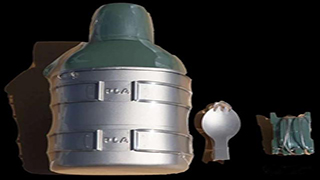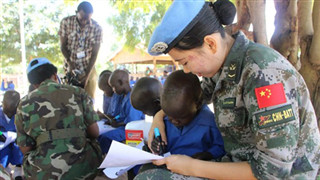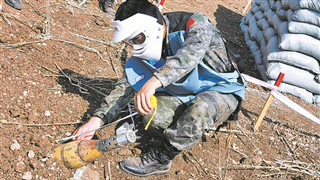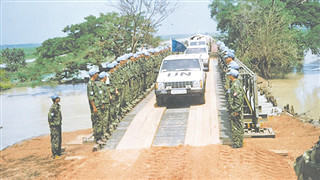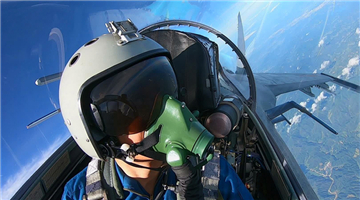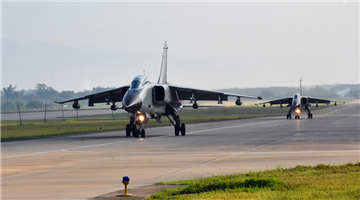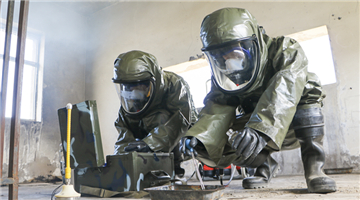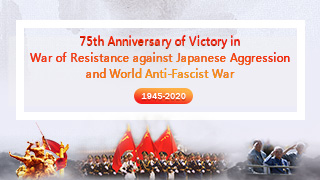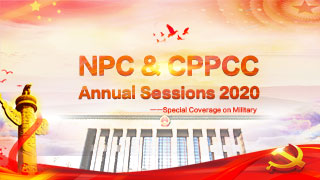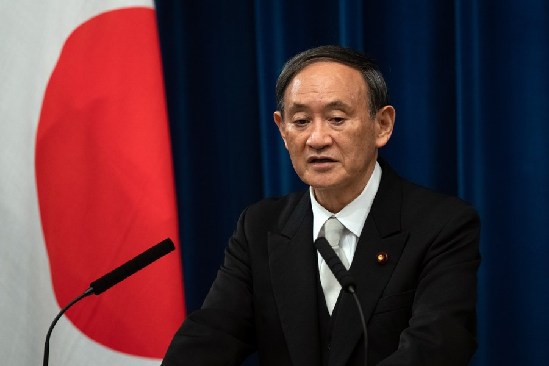
By Lyu Yaodong
On the evening of September 20, Japan’s new Prime Minister Yoshihide Suga made his inaugural call in office to his Australian counterpart Morrison, which drew close attention in the international policy circle.
Over the phone call, the two leaders reached consensuses on tightening their cooperation in building "free and open India-Pacific" and promoting international prosperity and stability in the post-COVID-19 era. They also agreed to intensify their bilateral relationship and expressed the wish to deepen the special strategic partnership between the two countries. The author believes Yoshihide Suga took the move to enhance Japan’s quasi-alliance with Australia and seek more acting points around the country on the basis of Abe's “Free and Open Indo-Pacific”(FOIP) vision, to open up a new diplomatic vista.
First, the Japan-Australia defense cooperation will be closer and more regular. Previous talks between the two countries’ heads of state usually focused on defense and security cooperation as they, “in consideration of the DPRK’s nuclear and missile development and China’s active maritime activities”, especially stressed the joint exercises between Japanese Self-Defense Forces and the Australian military as well as intensified cooperation in defense equipment. During the latest call, Yoshihide Suga proposed to deepen the cooperation with Australia in building a free and open Indo-Pacific region in the post-pandemic era, highlighting the importance of Tokyo and Canberra in shaping the quadrilateral cooperation including the US and India as well as the relevance to be tough on China over issues related to the East China Sea and South China Sea. The Visiting Forces Agreement (VFA) that was agreed between both parties during Abe’s reign may be signed much sooner. The agreement is a special arrangements made to uplift the two parties' military cooperation by legalizing the activities of each other’s military personnel and equipment in the other country. Once signed, it will allow both sides to carry equipment, ammunition and other materials to the other country when staying there for joint training, thus enhancing their defense cooperation in intensity and depth.
Second, Japan’s new prime minister shows his intention to form an iron triangle with Washington and Canberra to reinforce the country’s geostrategic control in Asia Pacific. In recent years, Japan has been actively establishing the so-called political and security mechanism of democratic states based on common values in the name of safeguarding “the common goal of achieving peace and economic prosperity in the Asia Pacific and the world at large”. Regarding maritime security cooperation in the Asia Pacific, the Asia country has strengthened its cooperation with the US and other allies to obstruct China’s right-defending activities on the sea. The defense ministers of Japan, US and Australia hold regular meetings on Asia Pacific maritime security, and have worked out the defense cooperation action plan concerning information exchanges and intensified monitoring and vigilance through joint military training on South China Sea issue, posing as the so-called defenders of “freedom of navigation” and “international norms”. Japan is also eager to form the special strategic partnership with Australia and intensify their security cooperation through the foreign and defense ministers’ consultation mechanism (Two Plus Two mechanism), to make the Abe-proposed FOIP more influential and appealing.
Third, Japan and Australia are strongly motivated to bond closer considering Trump’s emphasis on “America first” and his request for all allies to be more independent in defense while sharing more responsibilities. Japan hopes to have Australia’s help in implementing its strategic conception and confronting China in certain domains, while Australia is looking for a strategic pivot in the north of the West Pacific. As Washington becomes less influential in the Asia Pacific, Tokyo and Canberra have to reaffirm its importance in the region and jointly prevent their alliance with the super power from becoming an empty shell. Both the two countries intend to facilitate more active communication of ideas and opinions based on the Japan-US and US-Australia alliance. Taking it upon themselves to share “regional security responsibilities” in the Asia Pacific with the US, Tokyo and Canberra, as important allies in “strategic international defense cooperation” with Washington, find it imperative to expedite the formation of their “quasi alliance”. It’s foreseeable that the two countries will take further steps to enhance their so-called special strategic partnership.
(The author is a research fellow at the Institute of Japanese Studies under the Chinese Academy of Social Sciences.)
